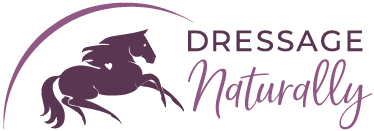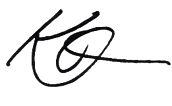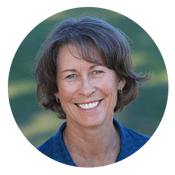Prefer to listen? Go HERE to listen to this topic on Karen's Podcast.
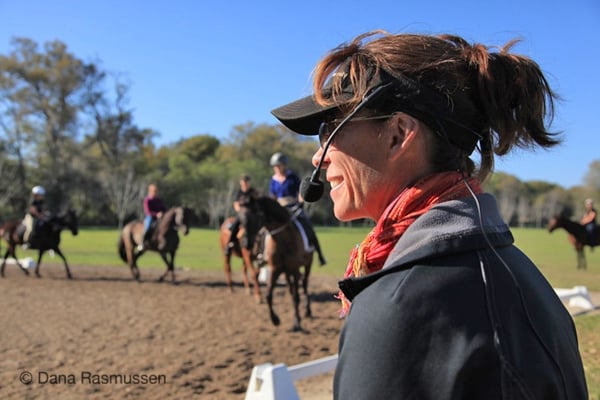
Finding the right teacher for each stage of your development is no easy task. It takes a unique combination of courage, skepticism, trust, and vulnerability. It is, however, totally worth it. The late great dressage master Walter Zettl was so right when he said dressage was a 'matter of trust'. Today, more than ever, students have a LOT of choices. The internet, and our ability to travel opens up a world of possibilities. Unfortunately, it also opens up the possibility for a world of confusion.
I have seen students pay a lot of money for lessons that leave them crying in the barn simply because they are in the wrong training situation, or getting the wrong advice... For them.
It's up to YOU, the student, to know what you want and choose the teacher that's right for you.
Here are some points to consider -
Know what you want to achieve.
If you don’t know where you want to go, it is hard to arrive there. I am all about ‘going with the flow’, but there is a difference between having a goal and changing it based on information you are getting about the truth of the present moment, and wandering aimlessly and randomly.
Not everyone has the same goals as you. Saying you want to jump or do dressage still leaves a wide range of ultimate outcomes. For example, do you want to do it for fun or for competition? If you aren't clear you can end up frustrated by the results you are getting - not because you aren't successful in doing what the teacher asks, but because you didn't realize that where you want to go is not the same place that this teacher is taking you! If you aren't sure, start by just making some lists of things that would make you feel happy and proud: If I could _____ with my horse, that would be great! Start a big and small wish list. If I could get both leads regularly and sit the trot comfortably... If I could feel competitive at a local competition, for example.
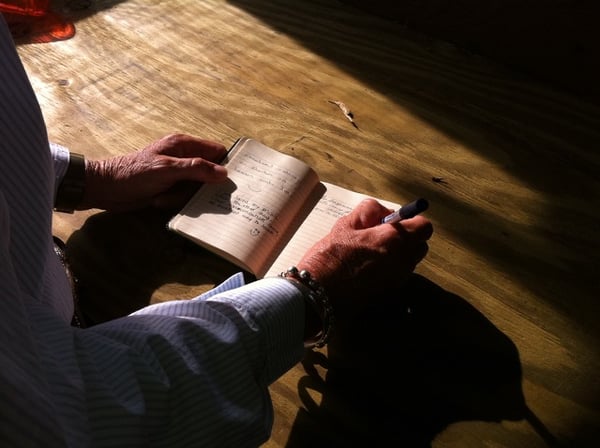
Assess yourself.
Where are you now? Realistically and truthfully describe your current skill set, without emotion or judgement. Describe what you currently can and can't do, or what you think you need help with. You may not know exactly what you need (and your instructor may have a really different opinion on what you need), but you do know what you are finding easy and difficult. Practice self-awareness!
Find ways to measure your results. Students may not realize when they're ready for a new teacher. What are the things on your checklist that you want to accomplish and how many can you check off? Take responsibility for your learning and notice when you are progressing, plateauing, or back-sliding.
Find teachers who have achieved what you want to achieve.
Your teacher's results don’t have to be exactly what you are aiming for, but make sure they are close enough to the kind of results you want. Don’t make assumptions. Are the qualities they create the ones you value? Do they have a proven system or a just a story? Do they have many successes (through their own horses or their students) or just one? Do their actions match their words? Make sure their results are more than just luck or just talk.
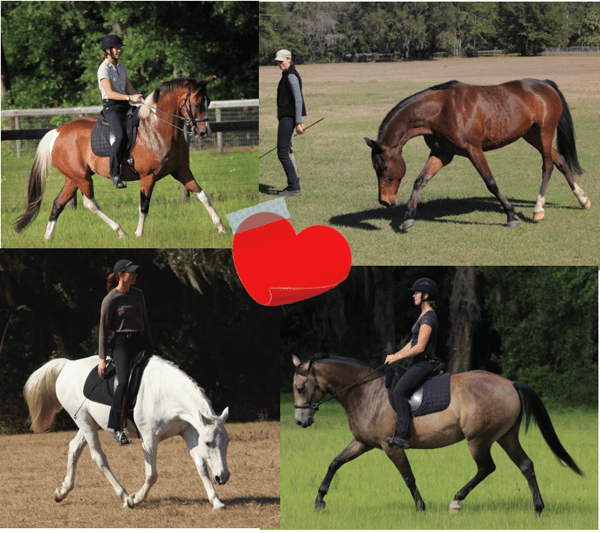
Understand the scope of the system or teacher you are considering.
Many specialists have a very narrow expertise. Make sure you really understand what your teacher's scope of focus is. Do they enjoy teaching students like you at your level? They may excel with a certain type of rider or horse or skill set. An upper level competition specialist may not be the best for you if you have foundational issues and no competition goals. They may still take your money and teach you though! They may excel in training super talented hot athletic horses and the methods they use will not work for your steady-eddy, unmotivated, average moving horse. They still may take your money and teach you. They may excel in foundation and creating really desensitized tolerant horses and so will always find issues with your easily bored, super curious high energy horse, not realizing that this horse actually needs to move ahead and be more gymnastically and mentally challenged.
Not all systems know themselves well enough, or have their business model set up such that they will tell you when you are NOT a good fit for them. Do your research!!
Know your principles and priorities and compare them to the person/system you want to learn from.
You will want to find a teacher who aligns with your principles and priorities. You may like a trainer's results, but may not at all like the process they used to get them.
If you and your horse get along well and are able to do what your instructor asks, then it is easy to get tips from a wide range of people. The real truth comes out when you are having challenges. Philippe Karl said: 'The measure of a system is not how it works for the most talented, but how well it works for the least talented'. I agree and expand it to: The measure of a system is not how well it works in the easy moments, but how well it handles the difficult moments.
The job of the system/teacher is to solve the problems. Sometimes that means admitting that they are not the right teacher for this horse or that they don't have all the answers. Beware of teachers who think they are the only ones who know what's right.
You'll want to know: What does the teacher do when things are NOT working?
Do they yell and scream? Do they get more forceful? Do they say: ‘This horse (or student) is a problem or is stupid? What are the principles and priorities they work within or that guide them?
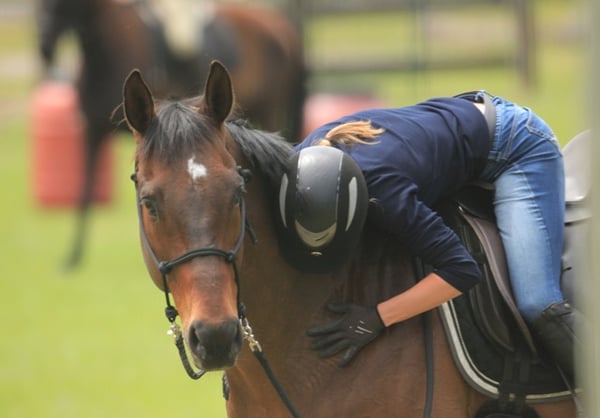
Examples of Principles and Priorities
As an example, here are some principles and priorities for myself and the Dressage Naturally system. These aren't just nice things to say. They actually drive my decision-making process when training and teaching.
Principles:
- The basics of dressage are FOR the horse and should feel good to the horse.
- Everything comes from and returns to relaxation.
- Mental, Emotional, and Physical development are equal doorways to our goal.
- Precision arrives out of the possibilities that playfulness creates.
- Dressage can only be as good as the Partnership, Communication, Biomechanics, and Riding Skills combined.
- Horsemanship and life are lessons in lightness
- Horses and humans seek harmony if given the opportunity
Principles in action
These principles guide me. These are my 'Go-To's'. For example, if I run into a training challenge, these principles remind me to keep light-hearted about it rather than getting angry. I would look at mental, emotional, and physical aspects of the challenge, and I would check on my general partnership and my own riding skills and quality of communication. I would choose solutions that would be playful and give the opportunity for harmony.
This may sound obvious, but so many times I have been horrified by the actions of trainers and teachers (that I thought were quite excellent) when they are presented with a big training challenge.
I am far from perfect and every moment is a new moment, but I consciously do my best to keep my principles in the front of my mind. I try to be highly aware if I start straying from them so I can re-assess, re-center, and return to my best self.
Priorities:
- Commit to a never-ending quest for self-awareness and self-improvement so I can be my best for my horse
- Give my horse an enjoyable life (freedom, forage, friends). Their lives are my responsibility.
- Understand and communicate with them & help them carry me in a healthy way
Priorities in action
These priorities are what keep me and my horses happy. I know that I cannot learn from a teacher whose system or methods won't allow me to keep these priorities.
I realize these are pretty generalized priorities... In my observation, big problems come when a training system (or a student) is too invested in the small details without being clear on the big picture priorities such as the ones I listed above.
For example: One system may say 'one should always prioritize counter canter before flying changes', but another says just the opposite. Those are details that can be debated endlessly because each could work or not work depending on the specific horse.
In contrast, whatever happens, with whatever horse, in whatever training problem, by remembering the three priorities listed above I know I can stay in a happy, calm state where I can problem-solve with a happy horse. From there anything can be figured out. No upper level dressage movement is worth violating these priorities.
Know how to follow a system.
Using what I described so far, you can find a teacher you can love to learn from. Yay! That is much less confusing than jumping from one teacher to another, getting tips and tricks but not understanding how to put them together.
However, there's still more you need to know. Following a system to achieve a goal (whether it was learning to knit, training for a marathon, or learning to play piano) is a bit of a Hero's Journey: You start out with a happy, grand plan. You meet some challenges, you wonder if you will be able to do it, you overcome the challenges, and you ultimately achieve success... Ta da!
That can be an emotional rollercoaster. You'll learn a lot about yourself. People who have never experienced going through that process may not know how to navigate it. It can be especially confusing with horses. Many students give up when it gets hard, and think there's something wrong with them. Sometimes they assume big challenges mean they need a new horse when in actuality, this is a normal part of the process of growing beyond yourself.
You are going to need help going through this. An excellent system or teacher will be able to help you move through this process. Good systems will have support (or at least compassionate understanding) built in. Observe other students of a prospective teacher and see how supported they feel when they run into the challenging moments. What is the culture or attitude among followers of this system? Will that work for you?
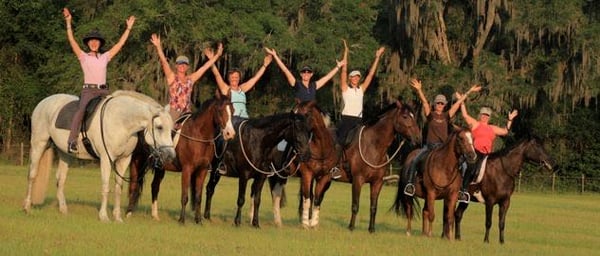
Find your guide
When you know your principles and priorities, it will help you make the best decisions for you and your horse. It will help you choose an instructor you can trust. The process of learning and developing yourself is something quite amazing, and it is even more amazing when we can do it together with a horse. For most of us mere mortals, having a guide, teacher, mentor, or system to follow is necessary.
It's so exciting that it really is possible to find a mentor beyond your local area. You can find a methodology that leads to results and has principles you can align with. You can be a part of a community and culture of being with a horse that feels supportive for you, even if you live in the 'middle of nowhere'. At least that's what we do here in Dressage Naturally!
As I said in the beginning: Finding the right teacher for each stage of your development is no easy task. It takes a unique combination of courage, skepticism, trust, and vulnerability. It is, however, totally worth it.
Thoughts? Scroll down to leave a comment!
